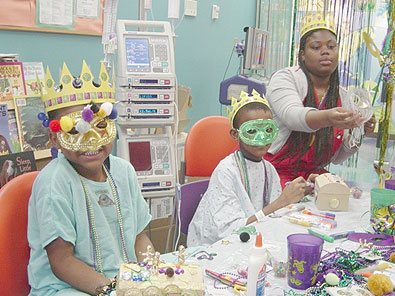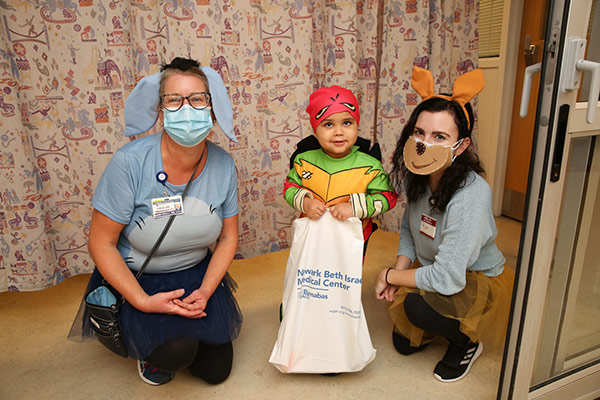Coping & Therapeutic Programs
Coping with Hospitalization
Any situation outside a child’s comfort zone could be stressful and frightening especially in a health care setting. Providing patients and families with different strategies for coping will provide a sense of control and better overall hospital experience. Here are a few strategies to increase your child’s coping skills:
- Honesty, state exactly how something may feel without minimizing it
- Inform hospital staff of important facts about your child
- Remain positive and supportive to your child
- Provide your full attention and offer praise before, during and after a procedure
- Utilize your own positioning so that your child can see and touch you at all times
- Prepare yourself for upcoming procedure for your own knowledge
During the procedure:
- Distraction: refocus your child’s attention to an activity they find interest in
- Imagery: ask your child to close their eyes and recall a positive place or memory
- Breathing: encourage your child to take slow, deep breaths
- Sensory experience: bring along your child’s favorite blanket or stuffed animal to hold before, during, or after the procedure
 Art Therapy:
Art Therapy:
Art Therapy is offered to our patients to promote well-being in the Valerie Fund Center Outpatient Clinic, Inpatient Pediatric Floor and Pediatric Intensive Care Unit. The Art Therapist helps our patients to explore their emotions, improve self-esteem, relieve stress, improve symptoms of anxiety and depression, and cope with physical illness or disability. Through self–expression, Art Therapy helps support developmental growth, relaxation, and coping during treatment and hospitalization.
Art Therapy involves the use of creative techniques such as drawing, painting, collage, coloring, or sculpting to help people express themselves artistically and examine the psychological and emotional undertones in their art. No artistic talent is necessary for art therapy to succeed, because the therapeutic process is not about the artistic value of the work, but rather about finding associations between the creative choices made and a client's inner life. A board certified art therapist works with our clients to understand the nonverbal messages, symbols, and metaphors often found in these art forms. This can lead to a better understanding of their feelings and behavior so they can move on to resolve deeper issues and cope with their treatments.
Art Therapy is the therapeutic use of art making, within a professional relationship, by people who experience illness, trauma, or challenges in living, and by people who seek personal development. Through creating art and reflecting on the art products and processes, people can increase awareness of self and others; cope with symptoms, stress, and traumatic experiences; enhance cognitive abilities, all while enjoying the life-affirming pleasures of making art.
Art therapists are professionals with graduate level training in both art and therapy. They are knowledgeable about human development, psychological theories, clinical practice, spiritual, multicultural and artistic traditions, and the healing potential of art. They use art in treatment, assessment and research, and provide consultations to allied professionals.
Therapeutic Programs
- Education/Tutoring
- Playroom/Teen Lounge
- Volunteer Program

